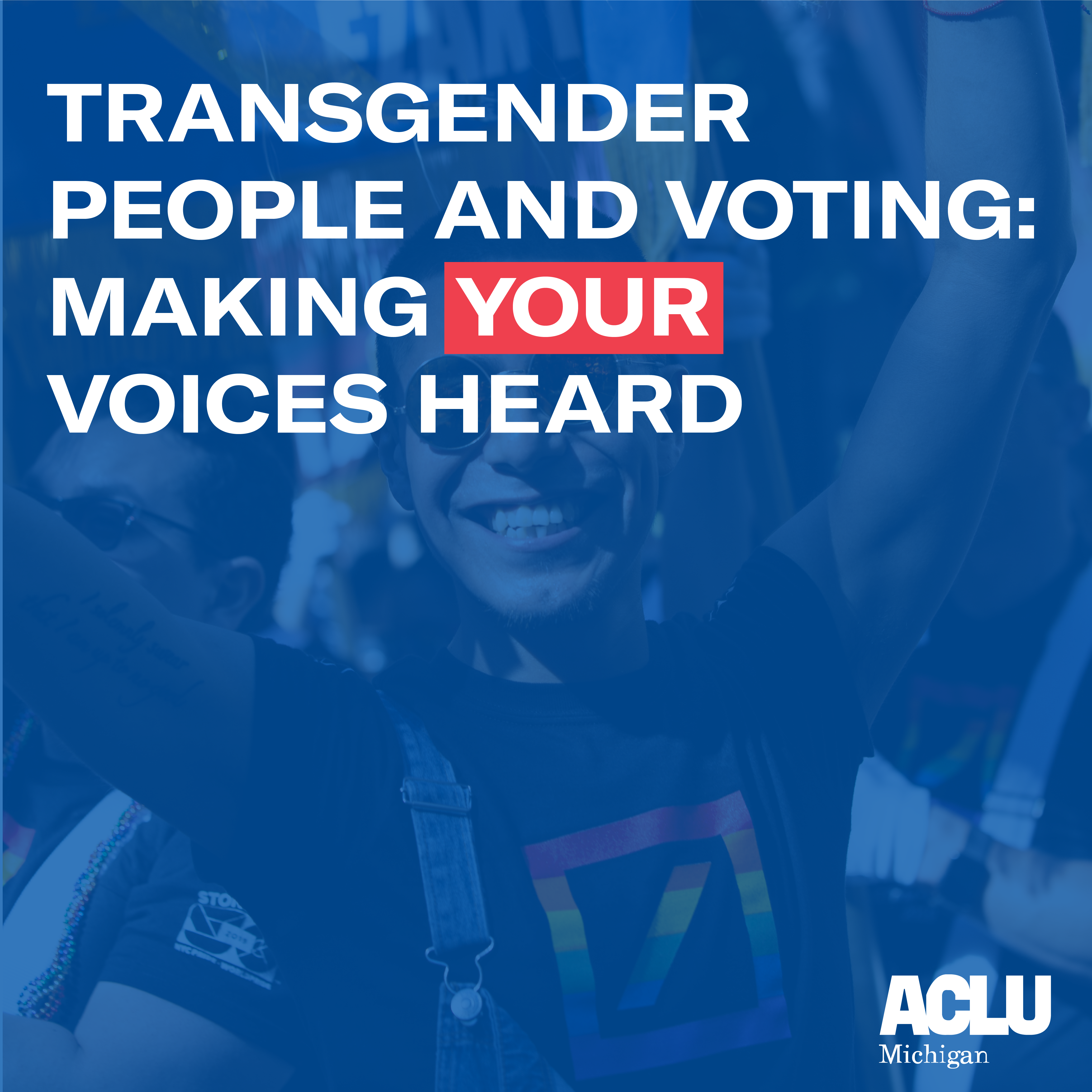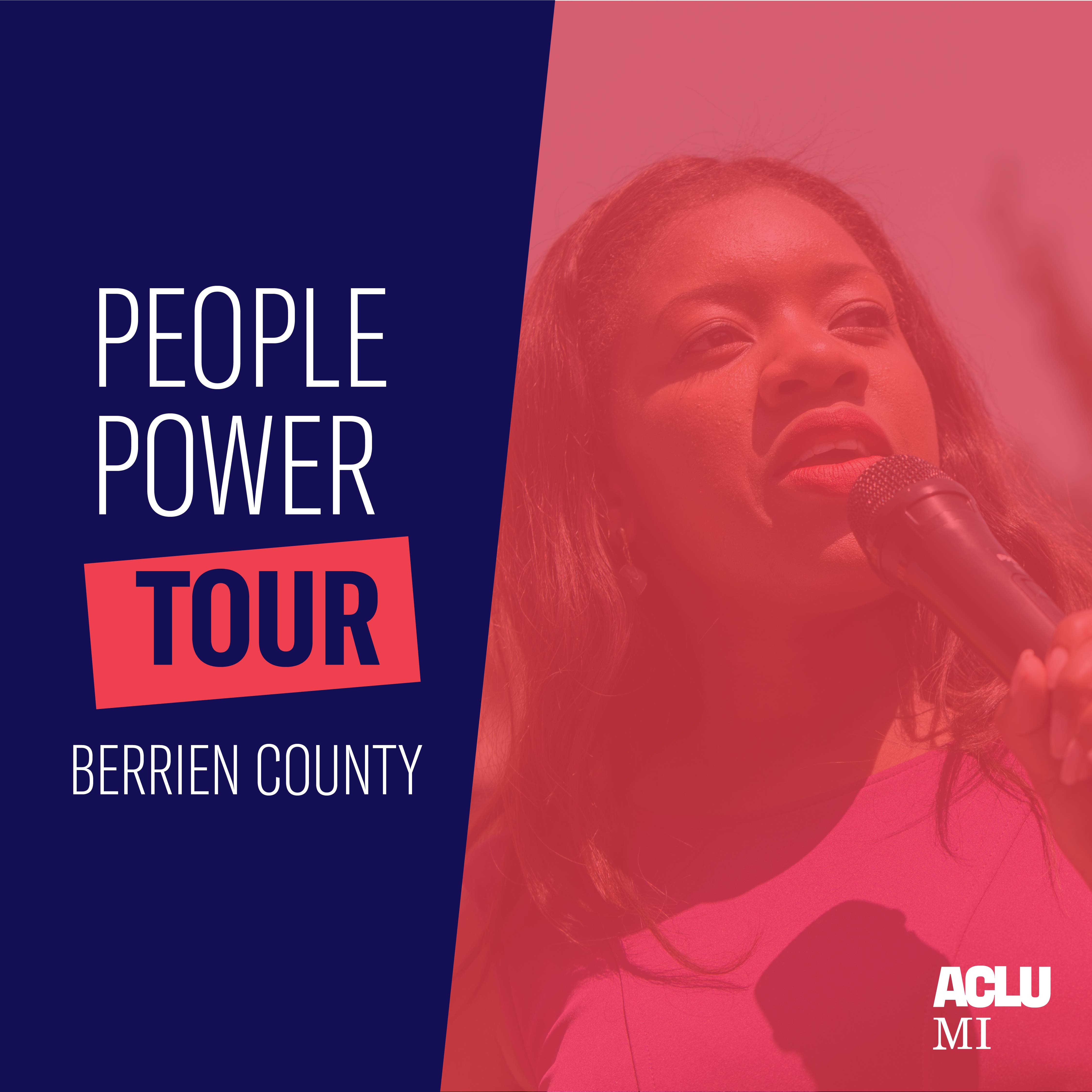Making your voice heard at the ballot box matters. For a transgender person, voting can be intimidating and sometimes humiliating because poll workers often don't understand what it means to be transgender, and what the law says. The good news is that during this election season, transgender people, like other voters, have options available that allow them to vote several ways. The important thing is that you know what those options are, and what rights you have.
Voting at the Polls
In Michigan, when you go to vote in person at your polling place, you will be asked to produce a photo ID. If you don’t have a photo ID or don’t have it with you, you can sign a simple affidavit, or form, to that effect and vote. But for transgender people this can be uncomfortable, particularly if your ID does not match your gender identity and presentation. Although obtaining a gender marker change on your driver’s license or state ID is relatively easy (you fill out a sworn affidavit regarding your gender), the process for obtaining a legal name change through the courts can be both complicated and costly, especially without the help of an attorney.
However, having a gender presentation that does not match your name on your ID is not a legal reason to deny you the right to vote at your polling place. Despite that fact, transgender people report being challenged and harassed by poll workers for this very reason, and, in some instances, even being denied a ballot. If you experience this problem or another kind of problem, or just have questions, you can contact the non-partisan election protection hotline at 866-OUR-VOTE (866-687-8683).
Absentee Voting
As a result of Michigan voters approving Proposal 3 in 2018, all registered Michigan voters now have the option of requesting an absentee ballot that allows them to vote from home. For transgender voters this is particularly important if they are uncomfortable voting at their polling place. You can request an absentee ballot online, or download an application from the Michigan Voter Information Center www.mi.gov/vote . You also can call your city or township clerk and ask that an application be mailed to you. If you haven’t done so already, it is advisable to request your absentee ballot right away and no later than October 16, given potential mail delays.
Early In-Person Voting
Another option is to show up in person at your city or township clerk’s office and request an absentee ballot, which will allow you to vote in person at the clerk’s office. Registered voters can choose this option now through 4 p.m. on Monday, November 2nd, the day before the election.
If you are not registered to vote, you can register at any time between now and 8 p.m. on Election Day at your city or township clerk’s office. You can register and vote all in one visit! If you go to register after October 19th you need to provide proof of residency. This can be a paper or electronic copy your Michigan driver’s license or state ID card, a current utility bill, a bank statement, a paycheck, or any government document.
Make Sure Your Vote Counts
At this point, mail delays are also a serious concern when it comes to submitting your ballot. Because courts might rule that your absentee ballot must be received no later than 8 p.m. on Election Day, which is November 3rd, the best thing to do now is hand deliver your complete ballot as soon as possible to your city or township clerk’s office, or one of the secure drop boxes that have been established in many locales. Doing so is the only way to ensure your ballot arrives in time to be counted.
There is much at stake in the current election regarding LGBTQ rights in general, and the trans community in particular. Over the past four years, the Trump administration has targeted and discriminated against the transgender community in employment, access to health care, homeless shelters, participation in school activities, and service in the military.
It is crucial that the voices of trans community members be heard this Election Day and beyond.

